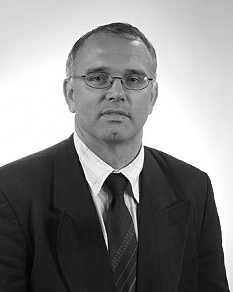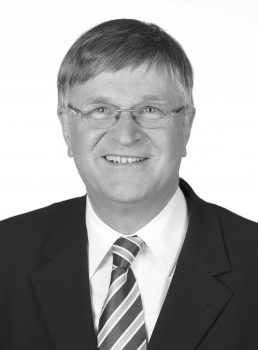In the last few days, while under high pressure preparing for the ESA Council meeting at ministerial level, I have been deeply saddened by the loss of two people I very much trusted and admired: Thierry Duquesne and Peter Hintze.

Thierry Duquesne. Image: CNES.
I met both of them in my early days at the German Aerospace Center DLR: Thierry as a member of the French space agency, CNES, and Peter Hintze as the German government’s coordinator for space and aeronautics. While my dealings with Thierry focused mainly on how to cooperate at ESA level and define common European goals, Peter Hintze was the authority behind Germany’s position within ESA and beyond.
I had many opportunities to speak with Thierry and, during the recent launch of the ESA astronaut of French nationality, Thomas Pesquet, to the International Space Station ISS, had the pleasure of joining him on stage at La Géode, in Paris, to celebrate the successful lift-off. Thierry, who served as CNES Director of Strategy, Programmes and International Relations since 2009, died after taking a moment to relax, going for a swim after a day’s work. His passing in this way came as a great shock to all who knew him. My feelings are very much with his family as they deal with this tragic loss.

Peter Hintze. Image: CDU/CSU-Fraktion, CC BY-SA 3.0 DE, via Wikimedia Commons.
Today, my mind is also drawn back to the very lively discussions about Ariane 6 when it was Peter Hintze who called me on a number of occasions, quizzing me about the technical, organisational and financial implications. He was Head of the German Delegation to the ESA Council at ministerial level in Naples and a great supporter of future projects: missions to the Moon, human spaceflight, including to the International Space Station, and possible European human space transportation systems; these were all matters he believed should be given full and careful consideration. After serving as Parliamentary State Secretary, he went on to become Vice-President of the German Parliament. Still his dedication to space continued. We remained in close contact, communicating on a number of space-related topics and I was pleased to be able to welcome him to DLR for its open day. We would also, at times, share our opinions on religious and spiritual matters and on a range of other subjects. When his illness was discovered, we remained in close contact as I did my best to accompany him through highs and lows of hope and despair. Finally he lost his fight against cancer, passing away last weekend. I feel honoured to have had the opportunity to meet this man who combined knowledge with great humour and a finely-tuned political instinct.
As we engage in the understandably hectic business of addressing vital (national) interests while seeking to obtain mutually satisfactory and substantive results, such sad events certainly make us pause to reflect on the importance of human relations, on life itself and its earthly constraints.

Discussion: 2 comments
Dear Jan,
I send you my condolences.
Loosing friends and/or family is always painful and I agree that it forces us to rethink or even recreate ourselves and our place in this world.
Therefore we should be guided here at ESA also by the principles of respect and safety and openness for everybody involved or affected by our daily space business and let us not be diverted by fear, greed or shortcuts.
Dear Jan, I knew both of them and I join my condelances to their families. Very sad news.
Michel